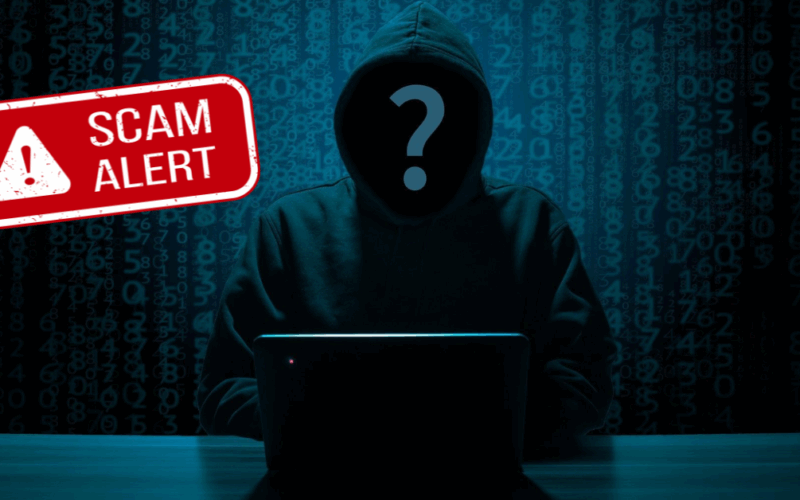Lafayette, LA – The FBI has issued a critical warning to Louisiana residents about the devastating “Phantom Hacker” scam responsible for stealing over $1 billion nationwide since 2024. This multi-phase scam has specifically targeted seniors aged 60 and older, many of whom have lost their entire retirement savings to these sophisticated criminals.
With the scam’s complexity heightened by the use of artificial intelligence, Louisiana families are urged to stay vigilant and informed to protect their hard-earned assets from these evolving cyberattacks.
The Evolving Threat to Louisiana Seniors
The “Phantom Hacker” scam employs a three-phase operation designed to build trust and manipulate victims into giving away control of their financial accounts. Unlike typical scams, this operation involves impersonating tech support, financial institutions, and government employees. According to Scott Davis, chairman of the Cybersecurity Association of Pennsylvania,
“These attacks are not just simple phone calls or phishing emails—they’re complex operations that involve multiple impersonators, spoofed phone numbers, and coordinated follow-ups. Seniors are being tricked into believing they’re protecting their money, when in reality they’re handing it straight to criminals.”
Adding to the threat’s sophistication, scammers now utilize AI technology to tailor scam messages by analyzing victims’ social media activities. Aaron Rose, security architect manager at Check Point Software, explains,
“AI technology can analyze social media content to detect personal interests and life milestones which allows it to generate messages that seem personalized. Criminals use personal interests to make their criminal actions appear authentic which decreases the chances of being caught.”
This personalization technique is particularly effective for Louisiana residents who often share moments from family gatherings, LSU games, or local festivals online.
Breaking Down the Three-Phase “Phantom Hacker” Attack
Phase 1: The Tech Support Impostor
The attack initiates with a scammer impersonating a representative from well-known tech companies like Microsoft or Apple. Victims receive calls, texts, emails, or pop-ups urging them to download software that grants remote access to their computers.
- Fake virus scans claim a computer has been compromised by foreign hackers.
- Victims are asked to open financial accounts on screen, unknowingly revealing sensitive information.
Phase 2: The Financial Institution Impostor
Following phase one, a second scammer pretending to work at a major financial institution contacts the victim, warning of an overseas hack. To “protect” the funds, victims are persuaded to transfer money to a third-party account, such as purported government agencies.
- Transfers are often split into multiple transactions via wire, cash, or cryptocurrency.
- Victims are instructed to keep the transfers secret, which isolates them from potential help.
Phase 3: The Government Agency Impostor
To dispel any suspicions, scammers pose as officials from the Federal Reserve or similar agencies, sometimes sending official-looking letters. This phase coerces victims who may begin doubting previous requests, reinforcing the urgency to move funds.
Essential Protection Strategies for Louisiana Residents
The FBI’s Internet Crime Complaint Center provides actionable advice to help residents guard against these sophisticated attacks:
- Never engage with unsolicited messages, pop-ups, or calls.
- Do not download unknown software or allow remote access requested by unknown persons.
- Be aware that legitimate government agencies never request money transfers via wire, cryptocurrency, or gift cards.
Warning Signs Seniors Should Recognize
- Unexpected calls or messages about computer problems.
- Requests to download programs or grant remote computer access.
- Claims of foreign hackers compromising accounts.
- Urgent instructions to move money quickly without informing family.
- Official-looking communications from government agencies you did not contact.
Steps to Take If You Suspect You Are a Victim
- Cease all financial transfers immediately and contact your bank.
- Document details of communication and software interactions.
- Report the incident to local law enforcement and parish sheriff’s offices.
- File a complaint with the FBI’s Internet Crime Complaint Center.
- Inform family members to alert and protect others.
The Road Ahead for Louisiana Families
Law enforcement agencies in Louisiana are actively collaborating with the FBI to identify and prosecute those behind the Phantom Hacker scams. However, prevention through education remains critical, as recovering stolen funds—especially those sent overseas—is challenging.
Financial institutions across Louisiana are stepping up efforts to raise awareness and improve fraud prevention programs. Customers are encouraged to inquire about their bank’s security measures and communications.
Staying informed and fostering open financial discussions within families, particularly involving elderly relatives, adds an vital defense layer against these advanced scams.




